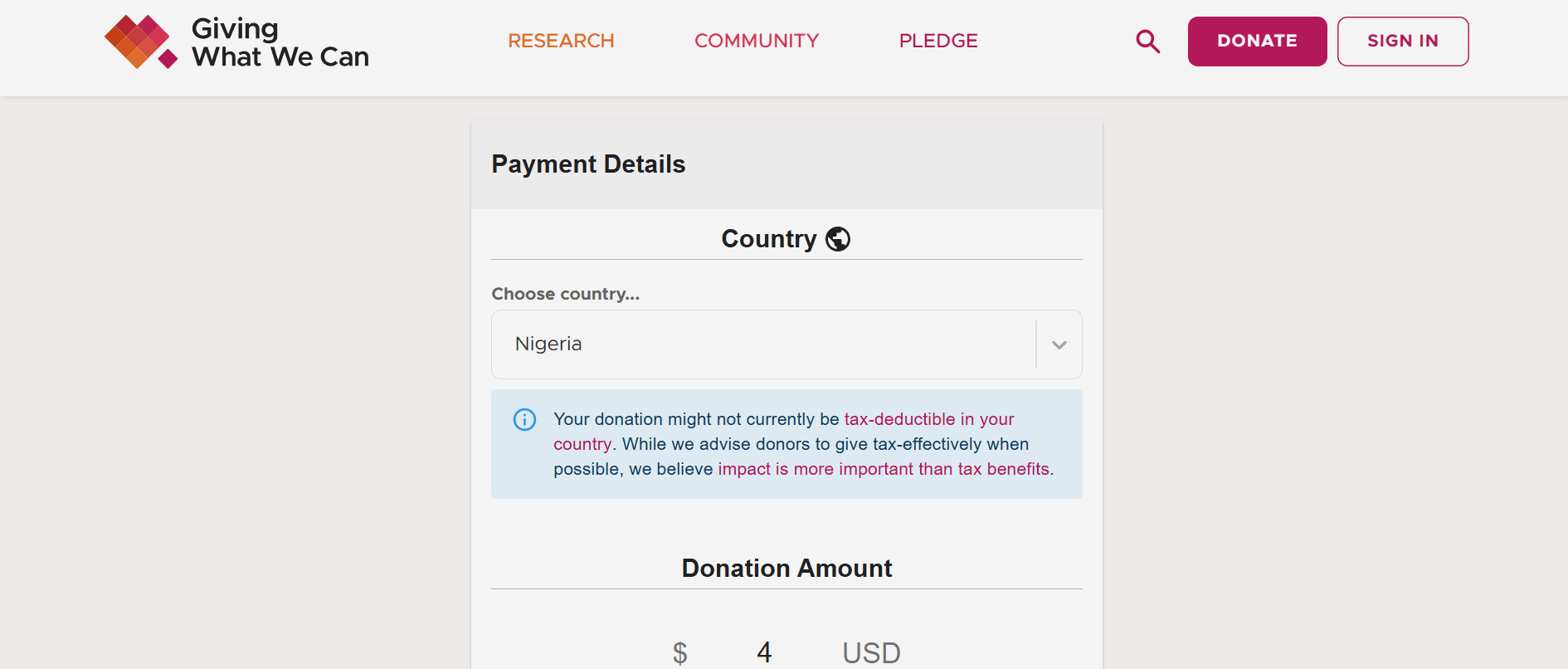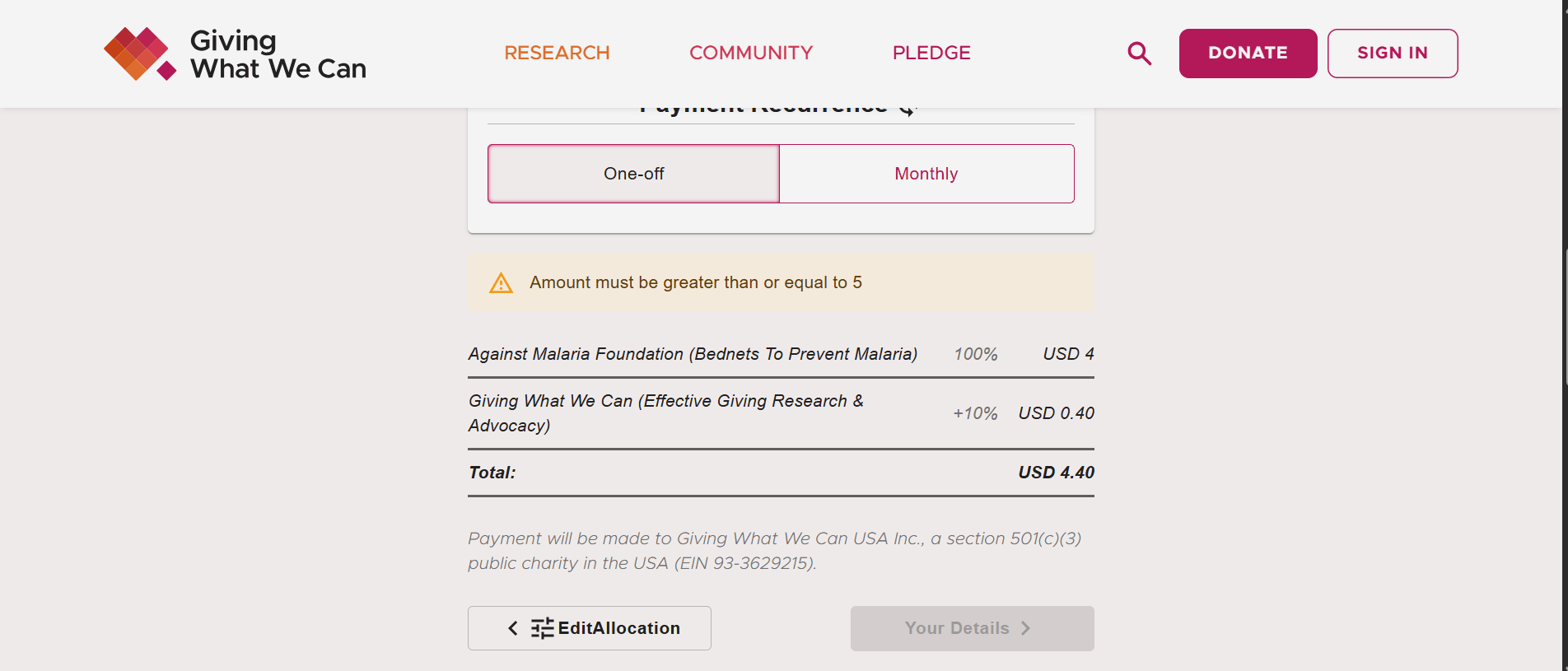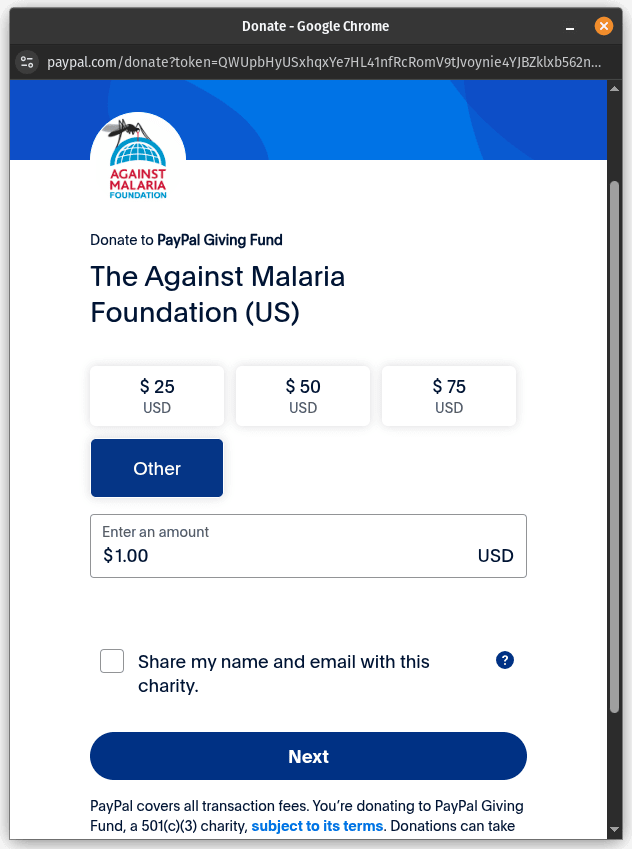I wanted to share a small but important challenge I've encountered as a student engaging with Effective Altruism from a lower-income country (Nigeria), and invite thoughts or suggestions from the community.
Recently, I tried to make a one-time donation to one of the EA-aligned charities listed on the Giving What We Can platform. However, I discovered that I could not donate an amount less than $5.


While this might seem like a minor limit for many, for someone like me — a student without a steady income or job, $5 is a significant amount.
To provide some context:
According to Numbeo, the average monthly income of a Nigerian worker is around $130–$150, and students often rely on even less — sometimes just $20–$50 per month for all expenses. For many students here, having $5 "lying around" isn't common at all; it could represent a week's worth of meals or transportation.
I personally want to make small, one-time donations whenever I can, rather than commit to a recurring pledge like the 10% Giving What We Can pledge, which isn't feasible for me right now. I also want to encourage members of my local EA group, who are in similar financial situations, to practice giving through small but meaningful donations.
In light of this, I would like to:
- Recommend that Giving What We Can (and similar platforms) consider allowing smaller minimum donation amounts to make giving more accessible to students and people in lower-income countries.
Suggest that more organizations be added to the platform, to give donors a wider range of causes they can support with their small contributions.
Uncertainties:
- Are there alternative platforms or methods that allow very small one-time donations to EA-aligned charities?
- Is there a reason behind the $5 minimum that I'm unaware of, and could it be adjusted to be more inclusive?
I strongly believe that cultivating a habit of giving, even with small amounts, helps build a long-term culture of altruism — and it would be amazing if students and individuals from around the world could participate more easily.
Thanks so much for reading. I'd love to hear your thoughts!


Hypothesis: A big reason why organizations like Givewell exist is because developed currencies go further in developing countries -- but, it's hard for people in developed countries to know the best foreign orgs to give to. Givewell fills that gap by doing research and publicizing it.
Insofar as that hypothesis is true, we should encourage EAs in developing countries to look for giving opportunities in their personal network, if good opportunities seem to exist there.
Here's another way of making the same argument:
GiveDirectly does blanket cash transfers for entire communities.
A hypothetical version of GiveDirectly which targets only the very neediest individuals, or only the most inspired entrepreneurs who will do the most to stimulate the local economy and reduce poverty, could be even more cost-effective. (IIRC, Givewell thinks most of the impact from their top charities comes from indirect "flow-through effects".)
Sadly, targeting individual recipients isn't possible at the scale GiveDirectly operates at. But, targeting individual recipients does seem feasible for an individual African donor who has a strong local network.
Note also that GiveDirectly has lost many thousands of dollars to fraud? Presumably, fraud would be less of an issue for a savvy local donor.
I think this argument is weakest in areas where local knowledge doesn't help a lot for knowing what works.
Even though Givewell is based in the US, for a while they were ranking US educational charities. Having a strong local network in the US doesn't necessarily help a ton for knowing which educational interventions work.
However, I still think a "randomized" giving algorithm such as "if your friends say this school really helped their kid, donate to that school" might work quite well for a lot of small donors at scale.